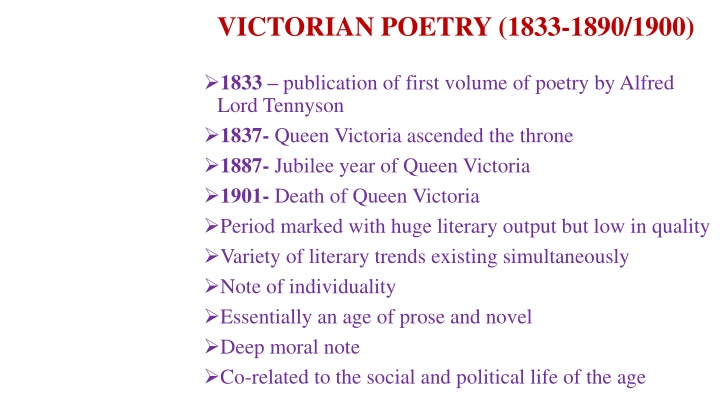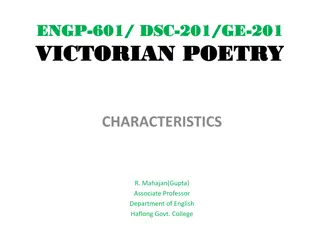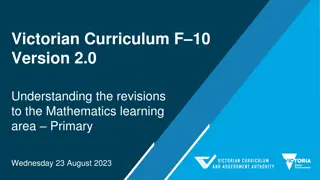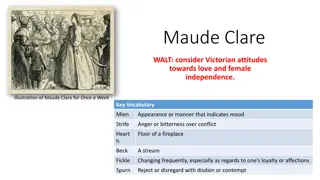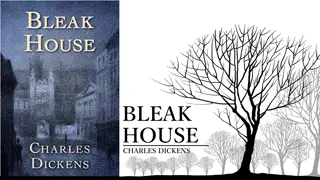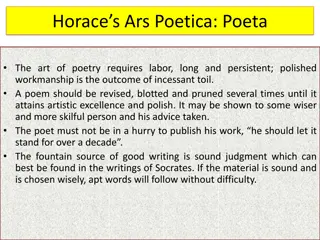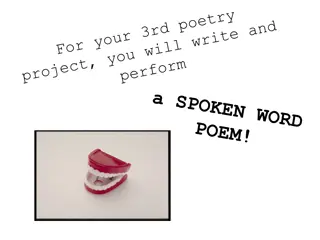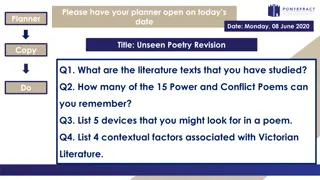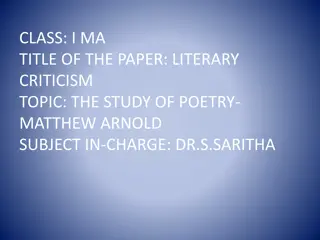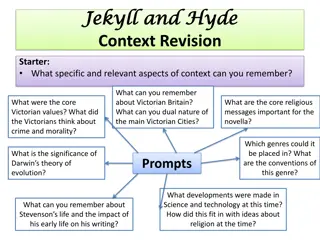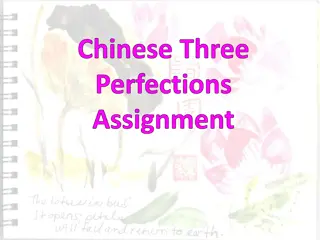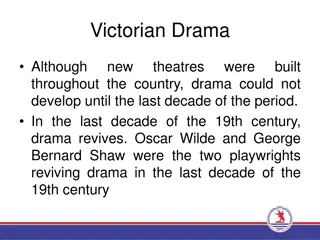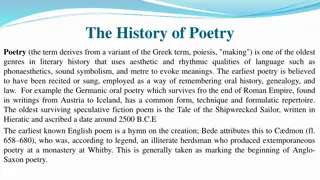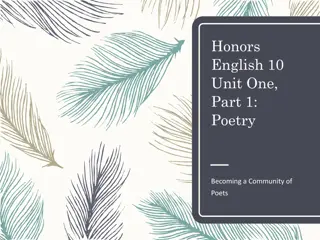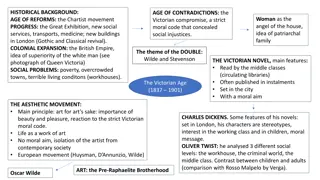Victorian Poetry: Highlights and Evolution
Victorian poetry, spanning from 1833 to 1900, reflects a period of diverse literary trends coexisting, marked by realism, romanticism, and social commentary. The era saw a blend of individuality, moral depth, and a reflection of social and political life. Poets like Tennyson, Browning, Arnold, and others contributed to the rich tapestry of Victorian verse, encompassing themes of nature, medieval myths, patriotism, and social reform. The evolution from idealism to pessimism, along with the impact of science and a focus on moral purpose, characterizes this significant literary period.
Download Presentation

Please find below an Image/Link to download the presentation.
The content on the website is provided AS IS for your information and personal use only. It may not be sold, licensed, or shared on other websites without obtaining consent from the author.If you encounter any issues during the download, it is possible that the publisher has removed the file from their server.
You are allowed to download the files provided on this website for personal or commercial use, subject to the condition that they are used lawfully. All files are the property of their respective owners.
The content on the website is provided AS IS for your information and personal use only. It may not be sold, licensed, or shared on other websites without obtaining consent from the author.
E N D
Presentation Transcript
VICTORIAN POETRY (1833-1890/1900) 1833 publication of first volume of poetry by Alfred Lord Tennyson 1837- Queen Victoria ascended the throne 1887- Jubilee year of Queen Victoria 1901- Death of Queen Victoria Period marked with huge literary output but low in quality Variety of literary trends existing simultaneously Note of individuality Essentially an age of prose and novel Deep moral note Co-related to the social and political life of the age
VICTORIAN POETRY CONTINUED Realism rather than romance (literature an instrument of social reform, social propaganda) Some poets Arts for Art s Sake Pre-Raphaelite school- escapist in nature Some poets continued Romanticism Note of pessimism-Arnold and Arthur Hugh Clough Note of idealism and optimism- Browning Impact of Science- doubt, care for minuteness, truth of observation, growing interest in social processes Note of patriotism- Tennyson Emphasis on men and women, added imaginative sensibility to the complexities of human life
VICTORIAN POETRY: SALIENT FEATURES Early Part: Age of Tennyson and Browning Huge poetic output ; some poets endowed with originality in outlook, character and style Love for Nature: continuation of the Romantic strain Love for the Medieval myths Spirit of adventure, Variety of poetic forms, lyricism Deep moral purpose Patriotism, idealism and optimism Major poets of this period: Alfred Lord Tennyson, Robert Browning , Elizabeth Barrett Browning
VICTORIAN POETRY: SALIENT FEATURES continued Later Part: Age of Arnold, Hardy Pessimism, doubt Realism, Naturalism Major poets: Mathew Arnold, Arthur Hugh Clough Nineties: often termed as the Naughty Nineties - a turbulent period Pre-Raphaelite School of Poetry(also called the Fleshy School of Poetry) Art for Art s Sake Poetry Inspired by Italian art of 14thand 15thcenturies Name Pre-Raphaelite adopted in admiration for the direct, uncomplicated depiction of nature seen in Italian painting before the time of Raphael, the great Italian painter
VICTORIAN POETRY: SALIENT FEATURES continued Pre-Raphaelites rejected academicism Faithful representation of Nature Stressed upon the interconnections between literature and painting Realism, naturalism and love for freshness, freedom, beauty, fidelity to minute details often led to sensuousness and also sensuality (hence, the name-Fleshy School ) Influenced literature from 1850s to 1900 Major poets: Dante Gabriel Rossetti, Christina Rossetti, Algernon Swinburne, William Morris, Ernst Dowson and Francis Thompson
